The summer season is upon us and, per each year, we’ve dug beyond studio offerings (though a few potential highlights remain) to present an in-depth look at what should be on your radar. From festival winners of the past year to selections coming straight from Cannes to genre delights to some high-flying spectacles, there’s more than enough to anticipate.
Check out our picks below and return for monthly updates as more is sure to be added to the calendar.
Happening (Audrey Diwan; May 6)
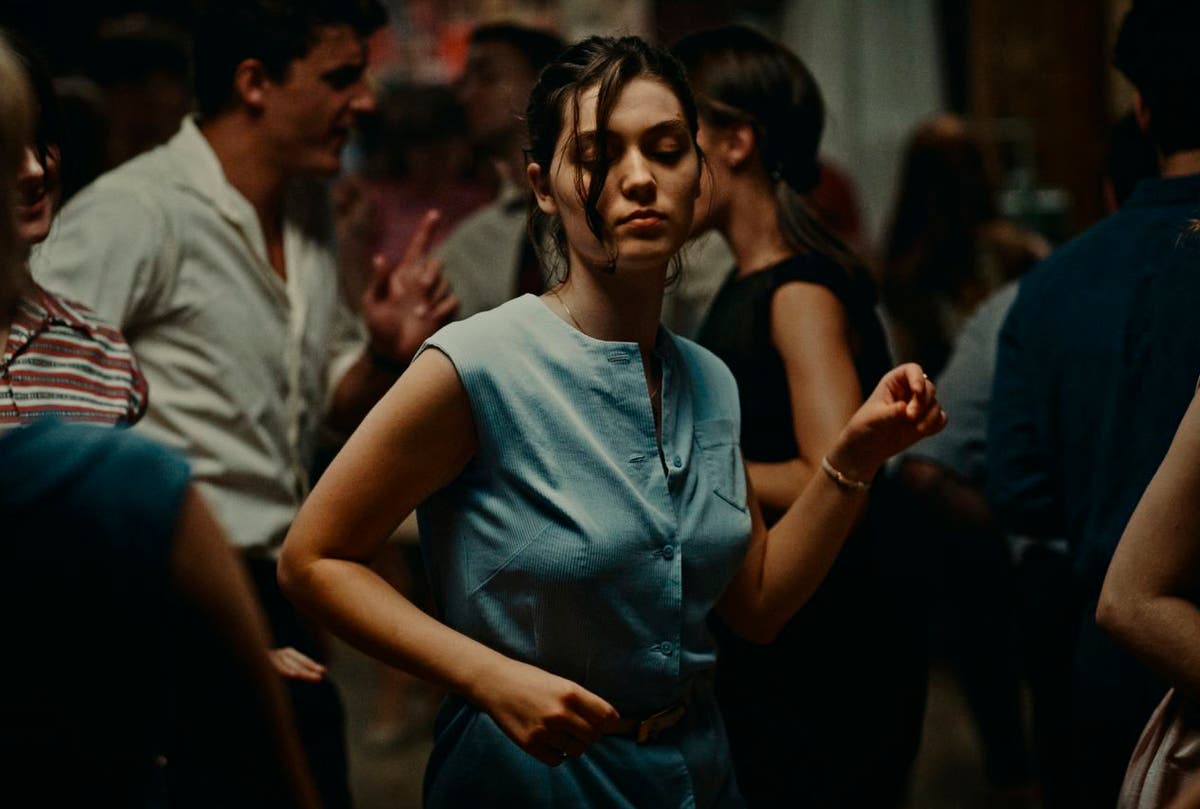
Diwan’s sophomore feature is an unglamorous, straightforward film that tells a simple story about an ordinary girl. It is also the single most intense, shatteringly empathetic thing I’ve seen all year. Carried by Anamaria Vartolomei’s fiercely committed performance, the ’60s-set drama takes on the subject of unintended pregnancy and illustrates how far from a political / religious issue it can be when it happens to you. Abortion has been dealt with in landmark films, but the intimacy of perspective achieved here feels truly unmatched. A vital call for kindness like no other. – Zhuo-Ning Su
In Front of Your Face (Hong Sangsoo; May 6)
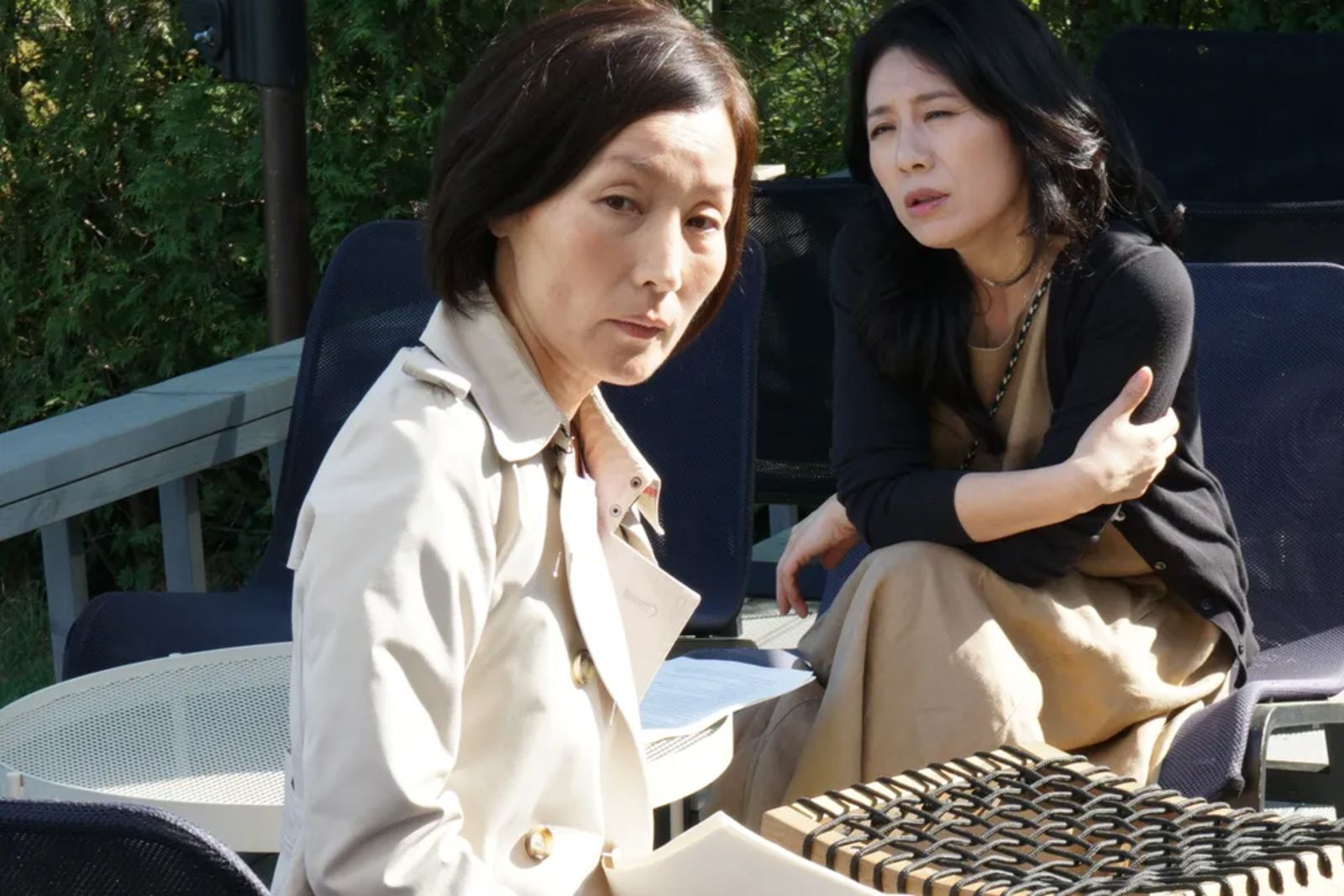
By evidence, Hong Sangsoo may never make an Oki’s Movie or Hill of Freedom-type work again; our maestro is shooting for bigger emotional game. It’s fascinating to observe how idiosyncratic directors make their way towards the arthouse mainstream. With Hong, arguably, it’s come from two sources: less of a rigid fixation on male vanity, neurosis, and inebriation, coupled with plot summaries you could describe in a brief, eloquent sentence. Oki’s Movie, for instance, approaches a Faulkner-esque writer with its digressive intricacy; The Day He Arrives is like a fractal Groundhog Day. This is well-rehearsed, but there’s something to be said for emotional transparency and an examination of things “as they are,” to paraphrase dialogue from In Front of Your Face’s lead character. Another well-rehearsed question: are we yet again in self-portraiture mode, for someone with a Dorian Gray-like attic full of them? – David K. (full review)
Lux Æterna (Gaspar Noé, May 6)

This May is the month of Gaspar Noé: his latest feature Vortex expands, and finally his medium-length work Lux Æterna–– which premiered at Cannes back in 2019––gets a U.S. debut. Béatrice Dalle and Charlotte Gainsbourg hang around a film set, telling stories about witches before chaos ensues. If one can’t handle a full dose of the provocateur, this brief, more experimental taste should do the trick.
The Innocents (Eskil Vogt; May 13)
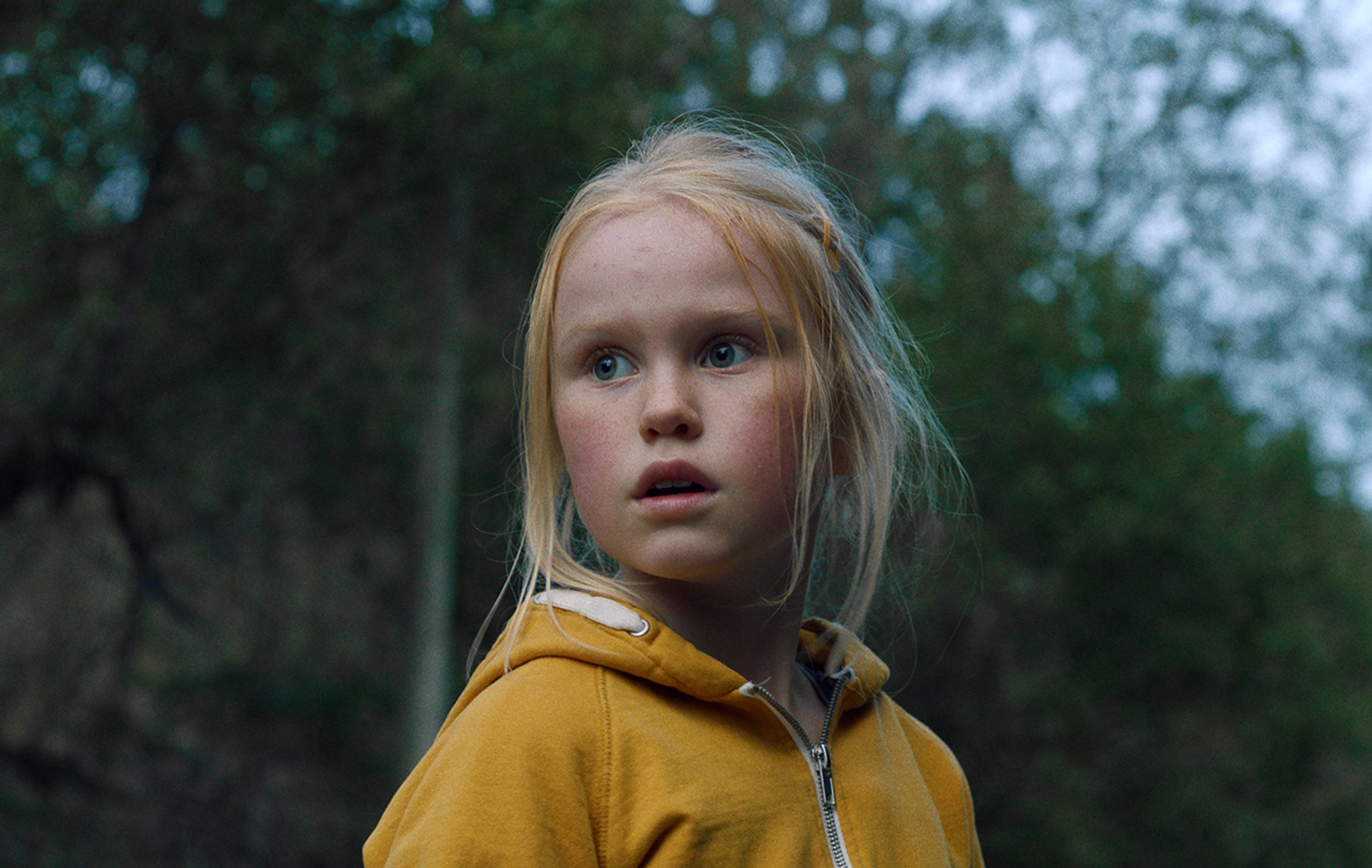
The Innocents, the assured sophomore feature from Eskil Vogt, is a prickly film about childhood morality designed to get under its audience’s skin. It quickly becomes apparent that the remaining unease has very little to do with the lingering effects of slow-burning horror, and much more with problematic casting choices that render the drama uncomfortable. It’s a shame as this is a confident effort, utilizing many of the same vague supernatural aspects as 2017’s Thelma (for which Vogt co-wrote the screenplay with frequent collaborator Joachim Trier) to tell a completely different coming-of-age story. It makes for an unsettling, more overtly horrifying companion piece, but one with too many noticeable flaws to properly escape from its shadow. – Alistair R. (full review)
Il Buco (Michelangelo Frammartino; May 13)

Caves… whence we came from––and for Italian auteur Michelangelo Frammartino’s latest work Il Buco––towards which we return. The fixation with caves and speleology in this film hint at the sometimes-regressive nature of that discipline. In human evolutionary terms, it’s like retracing one’s steps: going back towards the darkness, our primitive homes before homo sapiens could colonize other terrains (for better, or rather, for worse). As a candidate for geographical mapping, is there such an urgent sense of utility? Cave complexes such as the Bifurto Abyss in southern Italy, depicted in this film, are a kind of anti-space, comparable to actual “outer space” in their inaccessibility and inhospitality to today’s humans. – David K. (full review)
Montana Story (Scott McGehee and David Siegel; May 13)
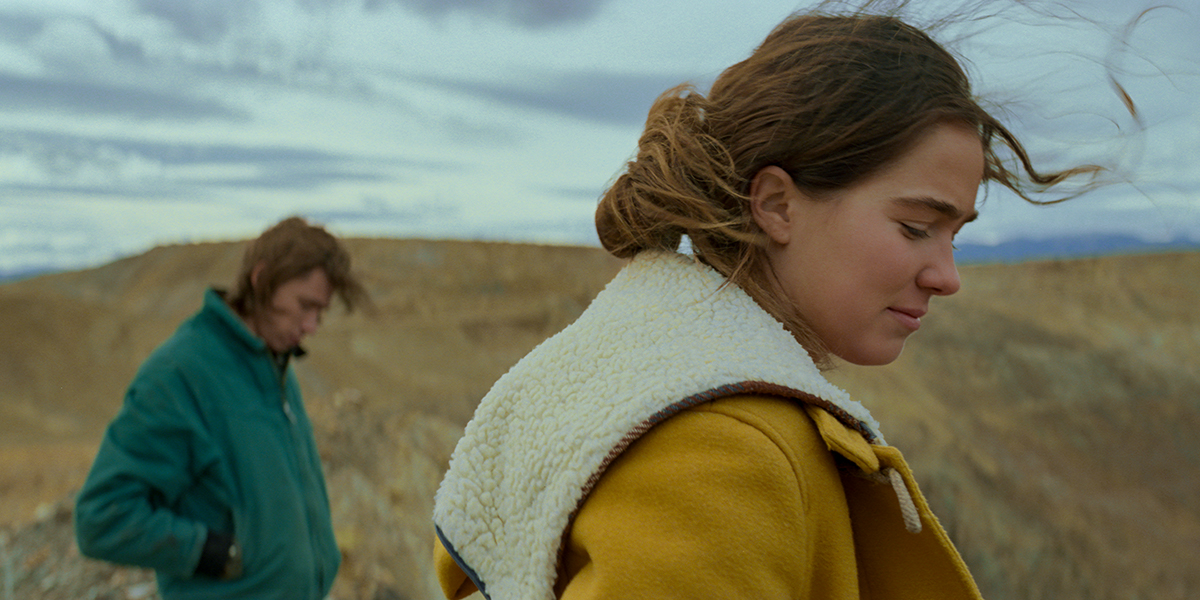
A well-observed neo-western rich with atmosphere, the latest from Scott McGehee and David Siegel (What Maisie Knew) follows estranged siblings (Owen Teague and Haley Lu Richardson) who reconnect after their father falls ill. A layered study of reckoning with past demons and contending with American myths, it’s an early highlight of the summer season. DP Giles Nuttgens brings the same level of patience and quiet grandeur to capturing the American West as he did in Hell or High Water. Fans of Kelly Reichardt should also find a great deal to appreciate in the subtle approach to an emotional throughline. – Jordan R.
On the Count of Three (Jerrod Carmichael; May 13)
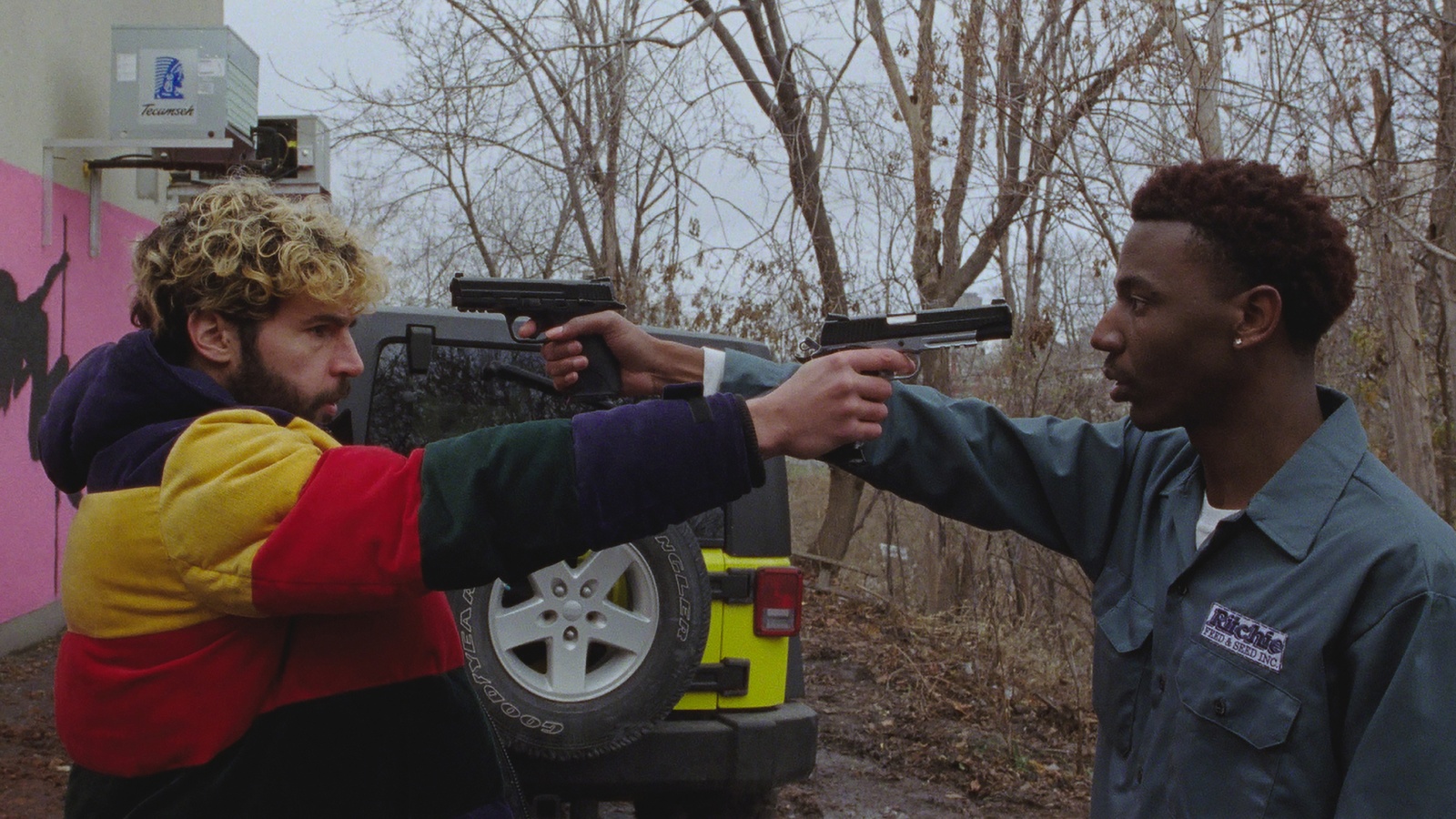
Considering the raw, uncomfortable truths found in Jerrod Carmichael’s comedy, the logline of his directorial debut shouldn’t come as a surprise: two friends make a pact to end their lives and experience one final day together before plans to carry through with the dual deeds. Though not scripted by Carmichael himself, The Carmichael Show writer-producer Ari Katcher and his Ramy co-writer Ryan Welch have crafted a character-focused story with layers of necessary darkness and pathos while still injecting humor that mostly feels like a natural fit considering the subject matter. As to be expected, Taste of Cherry this is not, but with its layers of despair and dark comedy mixed with genuine friendship, Carmichael owes a bit to Mikey and Nicky in this ride-or-die, last-day-in-a-life outing. Even if the last act doesn’t succeed as intended, On the Count of Three threads the difficult task of finding the humor in hopelessness while not exploiting the genuine pain of severe depression. – Jordan R. (full review)
Men (Alex Garland; May 20)
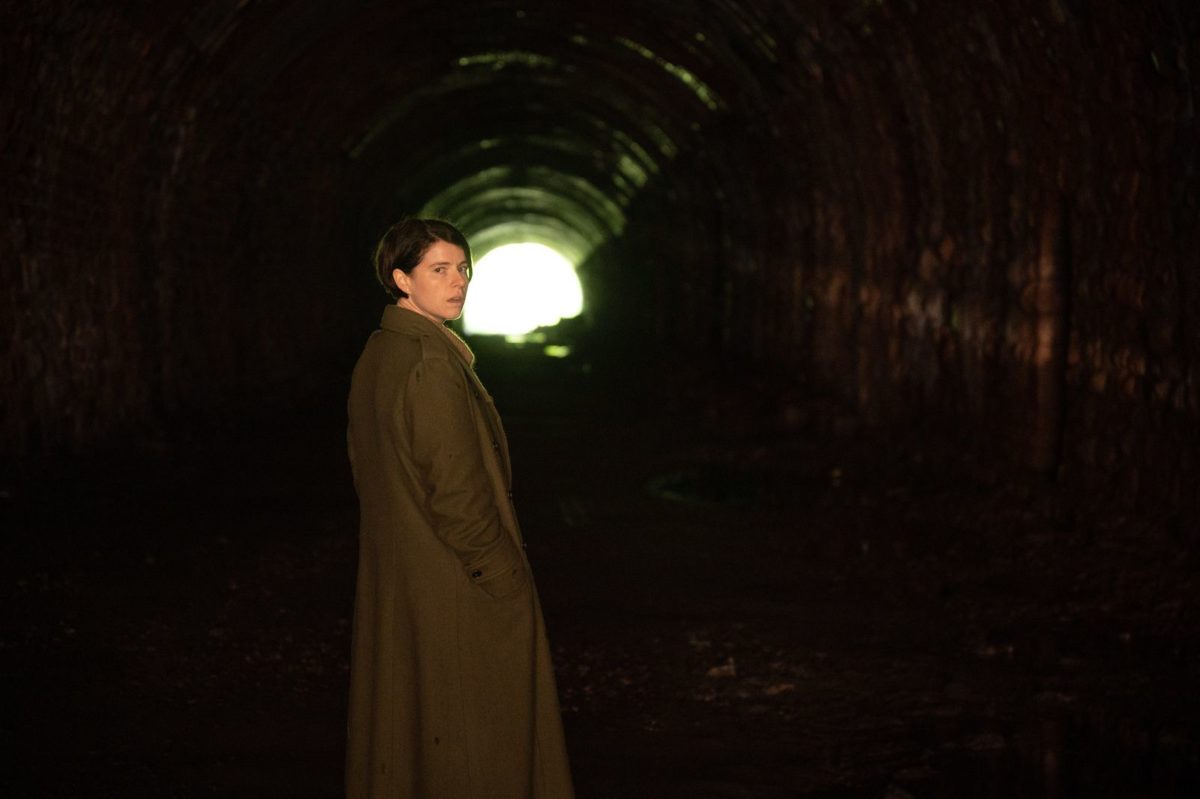
After stepping up his vision with Annihilation, Alex Garland looks to return to an Ex Machina-level scope with Men, an ostensible two-hander led by Jessie Buckley and Rory Kinnear. However, as the latest trailer revealed, Kinnear plays multiple characters haunting Buckley’s lead, who retreats to the countryside after the suicide of her partner. The proposition of Garland diving deeper into the psychological horror realm with a rising star like Buckley brings quite a level of anticipation. – Jordan R.
Top Gun: Maverick (Joseph Kosinski; May 27)

A film in the works for so long that production began in 2018 and its director has another film arriving just a month later, Top Gun: Maverick is finally ready for its debut next month. After the longest absence of Tom Cruise’s career, seeing the actor back to high-flying stunts will hopefully provide some reassurance the world is rehabilitating. While it’s hard to get genuinely invested in the narrative for this kind of legacyquel, hopefully there’s more on the bone than simply the action––and even if that’s all there is, it’s bound to be more captivating than the CG doldrums of the rest of the summer movie season. – Jordan R.
The Tsugua Diaries (Maureen Fazandeiro and Miguel Gomes; May 27)
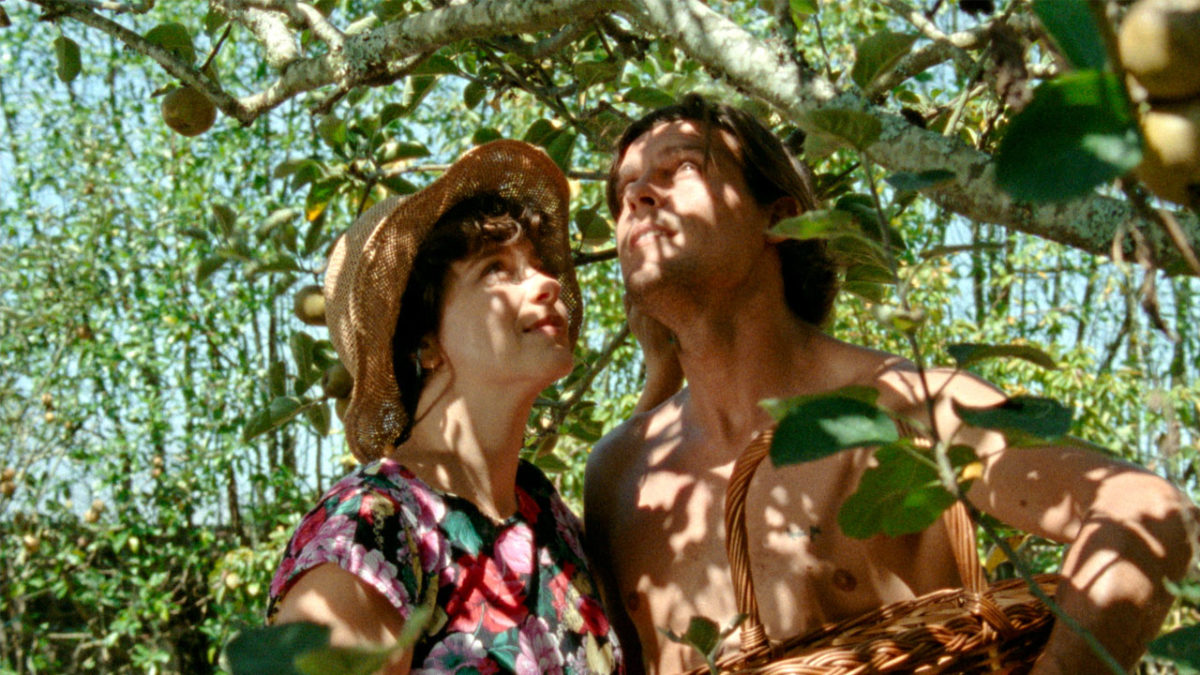
When the idea of “pandemic movies” becoming a sort of subgenre was formed and necessitated by global conditions, there was a groan that could be heard around the world. We know how this goes. Artists will jump on gimmicky opportunities to shallowly explore interior space and entrapment. It became a cliché before any movie was even made. Yet some great artists found a way to make unique, memorable studies of the current moment. Mati Diop’s In My Room used interior space and feelings of inability to escape to explore monotonous life. Rob Savage’s clever Host turned entrapment into a nightmare of computer-aided terror. The latest film from Portugal’s Maureen Fazandeiro and Miguel Gomes is an exercise in how art itself––and, by virtue, the people involved in making it––has been changed by the pandemic. – Soham G. (full review)
A Chiara (Jonas Carpignano; May 27)

Writer-director Jonas Carpignano completes his Calabrian trilogy with A Chiara, an enthralling drama about a teenage girl coming to terms with her family’s role in the mafia, which won the Europa Cinema Label at the Directors’ Fortnight in Cannes. With a documentary-like authenticity, this is a touching, powerful film with a lyrical visual palette and a superb sense of time and place. As in Mediterranea and A Ciambra, which told stories about immigration and the Roma community, respectively, Carpignano takes us to Gioia Tauro at the southern tip of the Italian mainland. For ten years the director has embedded himself here, a place infamous for the penetration in all walks of life of the ‘Ndrangheta, the secretive mafia clan that by some accounts controls three percent of Italy’s GDP. – Ed F. (full review)
Crimes of the Future (David Cronenberg; June 3)
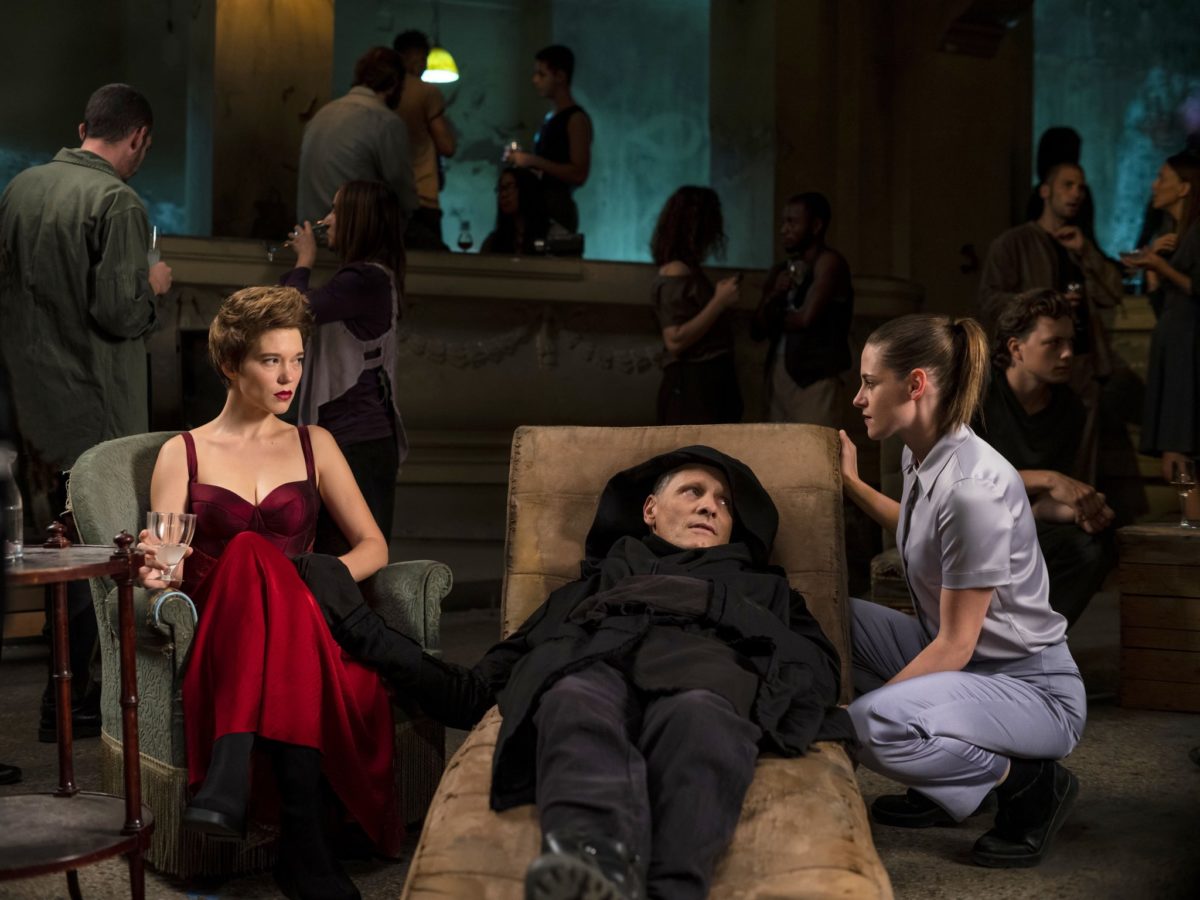
Eight long years since Maps to the Stars (a film that only grows stronger and truer in time) and well after I expected him to retire with many lifespans’ laurels to rest on, David Cronenberg returns by (maybe) looking back. Word has it 2022’s Crimes of the Future bears narrative tethers to 1970’s Crimes of the Future—both concern medical professionals, for one—though a revisit of that early whatsit yielded few tangible ideas as to how. All the same: who cares. Everything thus far suggests body horror from days past shot through the more austere (and personally preferable) lens of his later style, its cast sure to fit that antiseptic mold. And at least he’s pleased—Cronenberg was blunt enough to tell me Crimes is “a beautiful kidney stone.” Let it pass. – Nick N.
Benediction (Terence Davies; June 3)

Time is everything in a Terence Davies film. In Benediction, his biopic about English poet Siegfried Sassoon (Jack Lowden), he eventually covers his subject’s marriage to Hester Gatty (Kate Phillips). There’s a shot of the couple standing still, facing the camera as they pose for a wedding photo (a shot that tends to pop up throughout the director’s filmography). The camera flashes, we see the black-and-white photo, and then a fade transitions us to the future, where it rests on their bedside while Hester looks at their newborn child. The sequence is an encapsulation of what Davies does best: observing life with one’s head facing backwards, the cumulative weight of the past bearing down on every moment of the present. – C.J. P. (full review)
Neptune Frost (Saul Williams and Anisia Uzeyman; June 3)

Neptune Frost—the directorial debut from poet, rapper, actor, performer Saul Williams (co-helmed with Anisia Uzeyman)—exists in a state of singularity, teetering between present and future. Set in a makeshift village in Rwanda and featuring musical elements composed by Williams, the drama looks at technology, capitalism, and the big machine, and raises a middle finger by promoting protest, gender fluidity, and cosmic connection. Repetition becomes an anthem as Williams’ characters, a coltan miner and intersex runaway, find one another through shared dreams. It’s full of anger, passion, love, and a collective desire to impact the world and those that run it from high places. – Michael F. (full review)
Poser (Ori Segev and Noah Dixon; June 3)

If one wants their voice heard in the year 2021, start a podcast. So it goes for Lennon (Sylvie Mix), a poser with some delusional behaviors who lies to cultivate her personality to fit into the local art scene. A somewhat familiar story about obsession set adjacent to the unique world of the underground music scene in Columbus, Ohio, Poser is a charming and dark debut from directors Ori Segev and Noah Dixon. – Erik N. (full review)
Fire Island (Andrew Ahn; June 3)
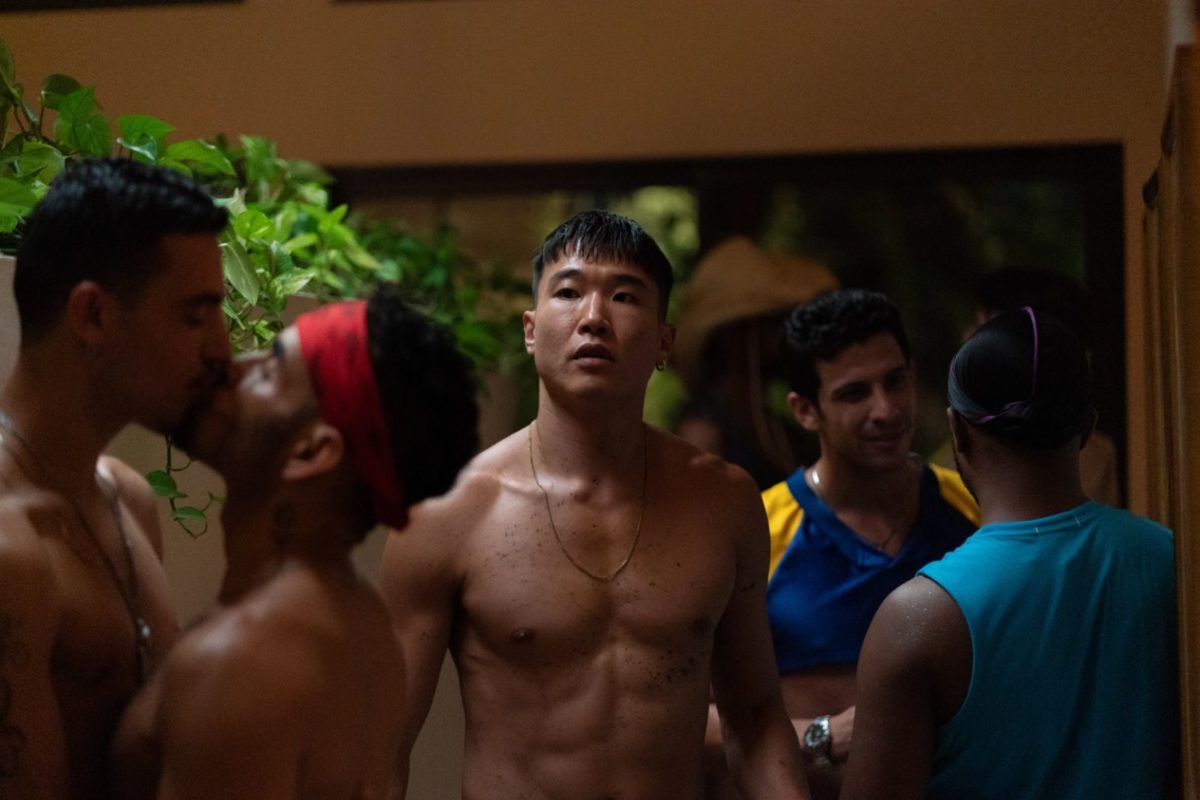
After his relatively subtle and restrained dramas Spa Night and Driveways, director Andrew Ahn is loosening up a bit with the romantic comedy Fire Island. Led by Joel Kim Booster and Bowen Yang, the story centers on two pals who head to Fire Island to reunite with a group of best friends for a weeklong vacation; a good deal of partying, romance, and heartbreak is in store. Following Ahn’s stellar last film, we’re looking forward to seeing him expand his potential audience while still retaining a strong sense of human connection. – Leonard P.
After Blue (Bertrand Mandico; June 3)
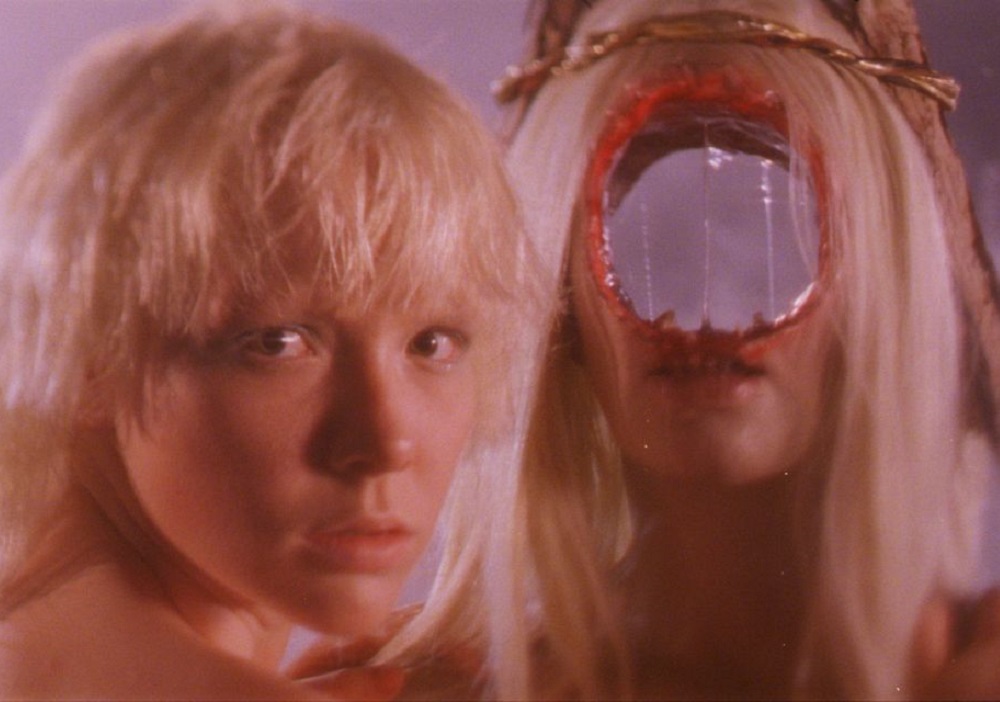
In the post-apocalyptic nightmare of After Blue, humanity—or what’s left of it—roams a former paradise turned wasteland. The Armageddon that wrecked the Earth in some undetermined past left no machines behind, no screens, and, perhaps most conspicuously, no men. In the distant planet the human race fled to, and which writer-director Bertrand Mandico’s film is named after, “they were the first to die,” we’re warned early on: “their hairs grew inside them, and killed them.” As it was for its predecessor, The Wild Boys, After Blue is suffused in a feverish ecstasy, that wild excitement that comes from a watching one world crumble and another jutting into being from scratch, a vision of a clean slate in which everything—and everyone—can be reinvented, and every norm challenged. – Leonardo G. (full review)
Watcher (Chloe Okuno; June 3)

Ever since It Follows, the 2014 horror movie about a spectral grim reaper stalking a teenage girl, Maika Monroe has become her generation’s avatar of fear and paranoia. Throughout her filmography, she boasts an inner world of melancholy that begins in a delicate register and then multiplies into a feverish anguish the farther her characters tumble down their own rabbit holes. It’s the kind of psychological spiraling that gives oxygen to director Chloe Okuno’s feature debut, Watcher, a chamber piece thriller and the latest gaslighting parable to champion Monroe’s specific set of skills. – Jake K. (full review)
Mad God (Phil Tippett; June 16)

In Mad God, a character called “The Last Man” (played by the great Repo Man director Alex Cox) runs a laboratory sending miniature explorers into the bowels of a layered Dantean hell that might be a reflection of his own psyche––or more likely still: that of the filmmaker. The man in question is Phil Tippett, a legendary Hollywood special effects guru, two-time Oscar winner, and Ray Harryhausen disciple whose eye-watering résumé reads like a highlight reel of 21st-century pop culture ephemera: designing the Cantina masks, AT-ATs, and Jabba the Hutt for George Lucas; being credited as “Dinosaur Supervisor” on Jurassic Park; and animating everything from the holochess set on the Millennium Falcon to the ED-209 in Robocop and the swarming hoards of bugs in Starship Troopers. What a life. – Rory O. (full review)
Good Luck to You, Leo Grande (Sophie Hyde; June 17)

Some films just seem easy to make. This is a compliment—nothing back-handed about it. Good Luck to You, Leo Grande is one such example. As written by Katy Brand and directed by Sophie Hyde, every minute feels extremely natural. Emma Thompson and Daryl McCormack star as Nancy Stokes and Leo Grande, respectively. The latter is a stunningly (stunningly) handsome sex worker. The former is a retired, widowed teacher determined to discover a sex life that got buried under thirty years of polite, repressed marriage. – Dan M. (full review)
Cha Cha Real Smooth (Cooper Raiff; June 17)
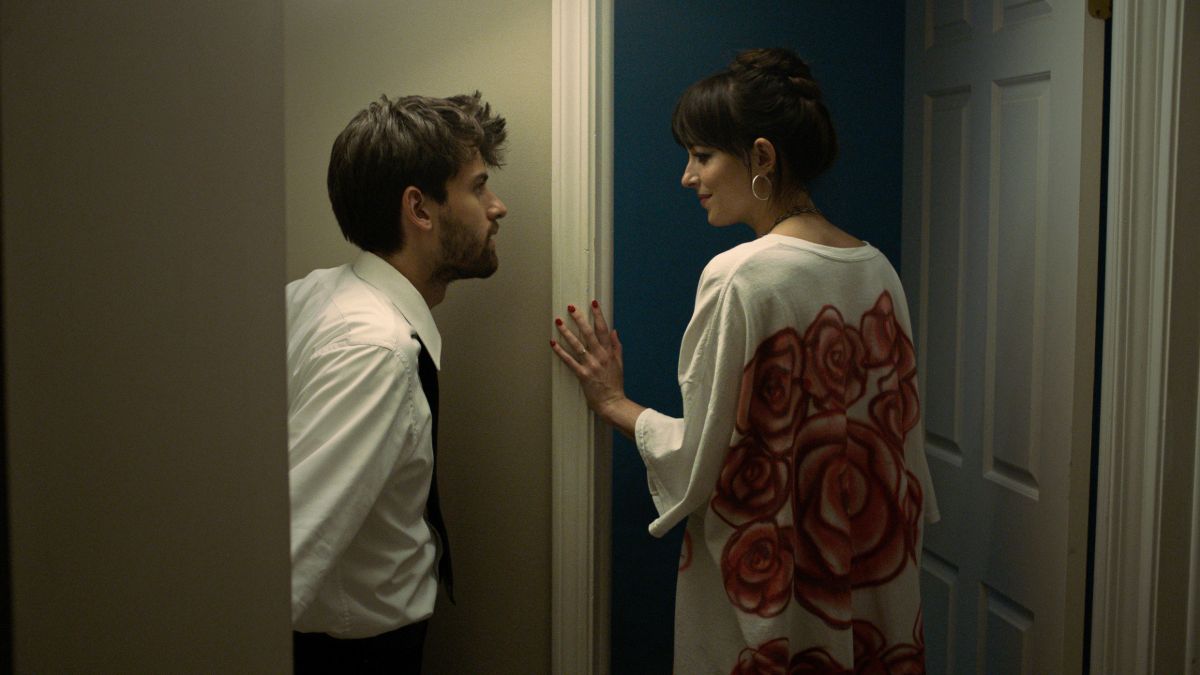
It’s not exactly cool to be the nice guy these days, but Cooper Raiff is making a good case for them again. In each of the 24-year-old’s first two movies, his sensible zoomer characters have the gift of being goofy, innocent, and naive. They wear their kind and confident hearts on their sleeves, even if they often breach the comfortable boundaries of social norms. Mostly they are empathetic, rid of the toxicity that makes vulnerable young men—and the movies they star in—sour and one-dimensional. That this young and perceptive writer-director is so emotionally honest only elevates the entirety of his humble, charming, crowd-pleasing work. – Jake K. (full review)
Flux Gourmet (Peter Strickland; June 24)
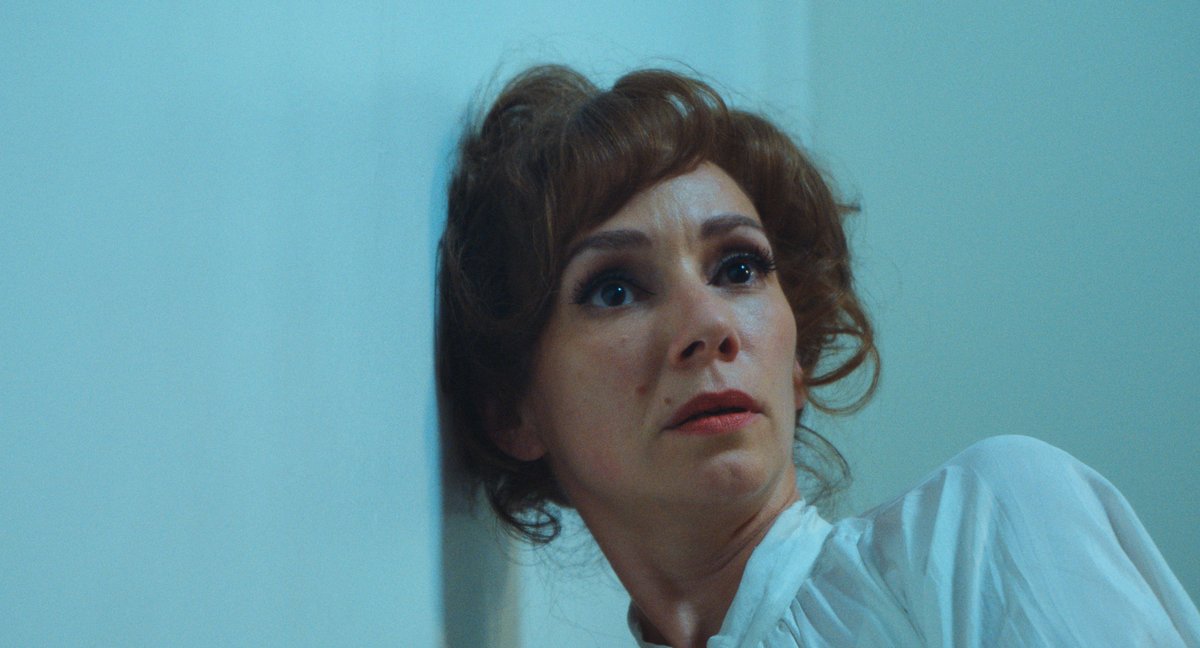
Flux Gourmet is arguably the first instance where Peter Strickland, the British genre specialist who’s always seemed inches away from a real career breakthrough, has had the storyline and structure—the real, solid content, basically—to make something as good as his posters and loglines promise. Making reference to promotional material is not superficial: more than anyone associated with arthouse horror (or “elevated horror,” to stir the pot) currently working, he is absolutely soaked, marinated in more disreputable sides of the genre: to be blunt, the softcore, Europhile, blood-soaked exploitation kind. Where the goal, some decades ago, was to just make you buy a ticket for the thing… so you could see all that. – David K. (full review)
Elvis (Baz Luhrmann; June 24)

If studio filmmaking has felt a little dull in the last, oh, nine years, it perhaps has at least something to do with the lack of Baz Luhrmann, a director whose vibrant, often audacious style deserves the big screen. He’s now returning this summer with Elvis. Austin Butler (who impressed in Once Upon a Time in Hollywood) stars as the rock ‘n roll legend, joined by Tom Hanks undergoing quite a transformation to play manager Colonel Tom Parker, who discovered the artist in 1955. With a Cannes debut set, we can expect first reactions in just a few weeks. – Jordan R.
Apples (Christos Nikou; June 24)
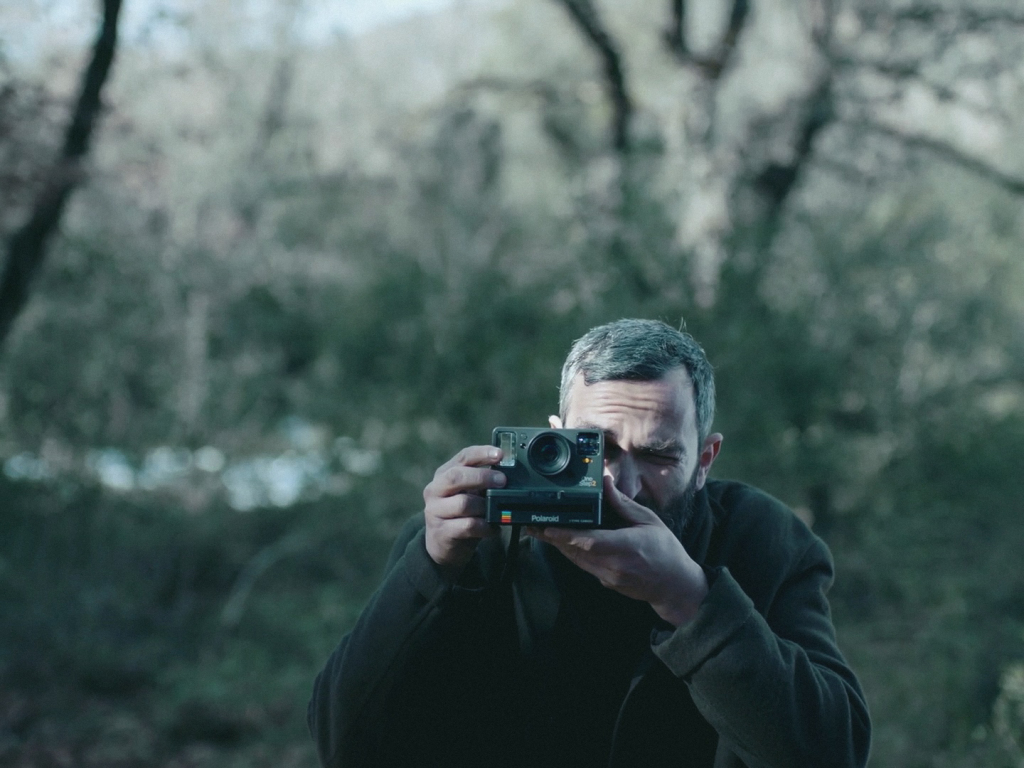
Apples is set in a world where digital technology seems not to exist, yet the psychic imprint of the digital age hangs heavy over first-time director Christos Nikou’s sparse absurdist dramedy. In an alternate-universe Greece, people are falling victim to a pandemic of sudden-onset Memento syndrome: total, crippling amnesia that befalls ordinary adults seemingly at random, necessitating elaborate state-run medical programs for the mnemonically impaired. Of particular concern to such programs are “unclaimed” amnesiacs, patients who fail to be identified by friends or family members and thus become wards of the state, who must be gradually rehabilitated into society and construct new identities from scratch. – Eli F. (full review)
The Forgiven (John Michael McDonagh; July 1)
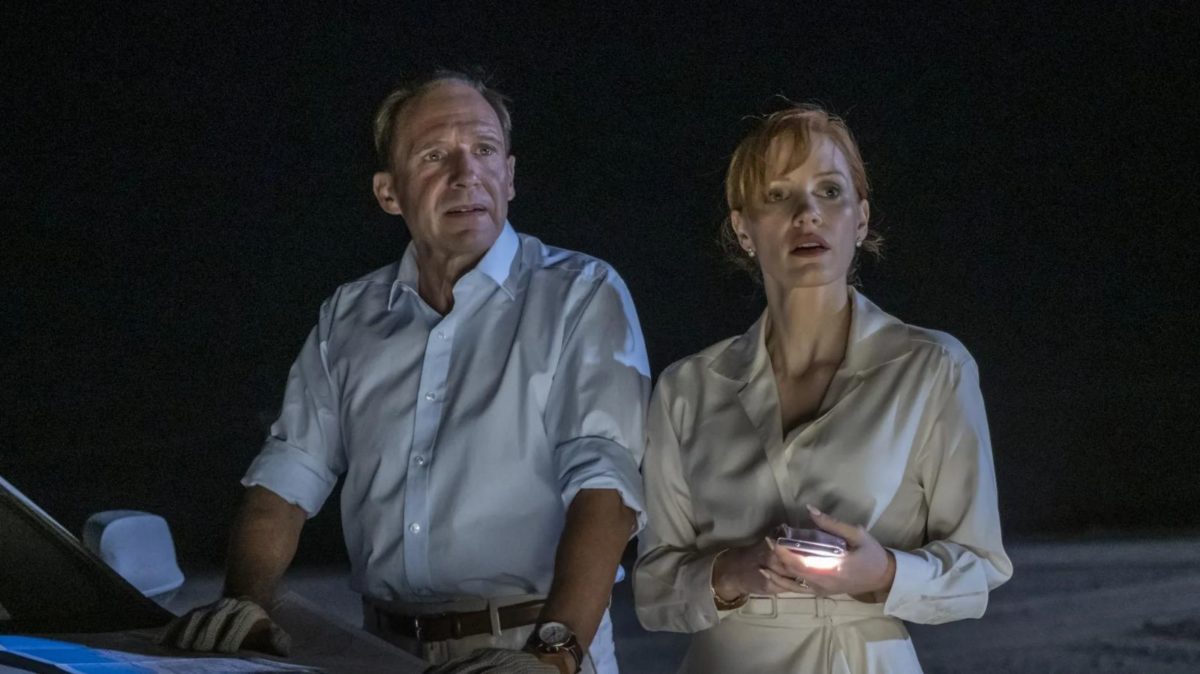
Before Martin McDonagh’s In Bruges reunion The Banshees of Inisherin arrives this fall, the latest from his brother John Michael McDonagh, The Forgiven, opens this summer. Despite a TIFF premiere that seemed to go under the radar last fall, the proposition of Ralph Fiennes back in the McDonagh family—alongside Jessica Chastain, Caleb Landry Jones, Christopher Abbott, and Matt Smith—has us quite intrigued. The story follows a couple in Morocco whose life gets thrown asunder by a random accident. – Jordan R.
Both Sides of the Blade (Claire Denis; July 8)
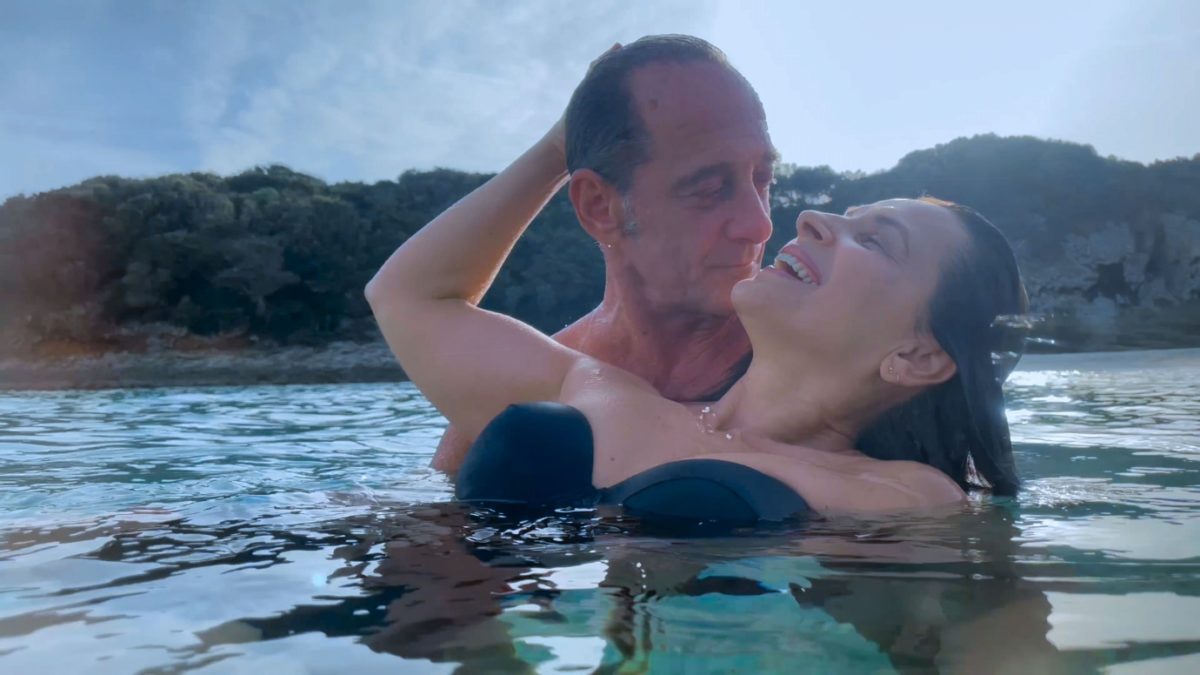
In Both Sides of the Blade a romance breaks down and threatens to break up in a stylish apartment overlooking the sweet Parisian skyline. The director is of course Claire Denis, a filmmaker whose last work began in a place that looked like Eden and ended in a spaceship plummeting toward no less than a black hole. A baroque melodrama that might just maybe be a trolling farce, Both Sides of the Blade‘s concerns are of a more earthbound variety–though if the insistent strings of Tindersticks’ score are something to go by, they are of no less importance. – Rory O. (full review)
Murina (Antoneta Alamat Kusijanovic; July 8)
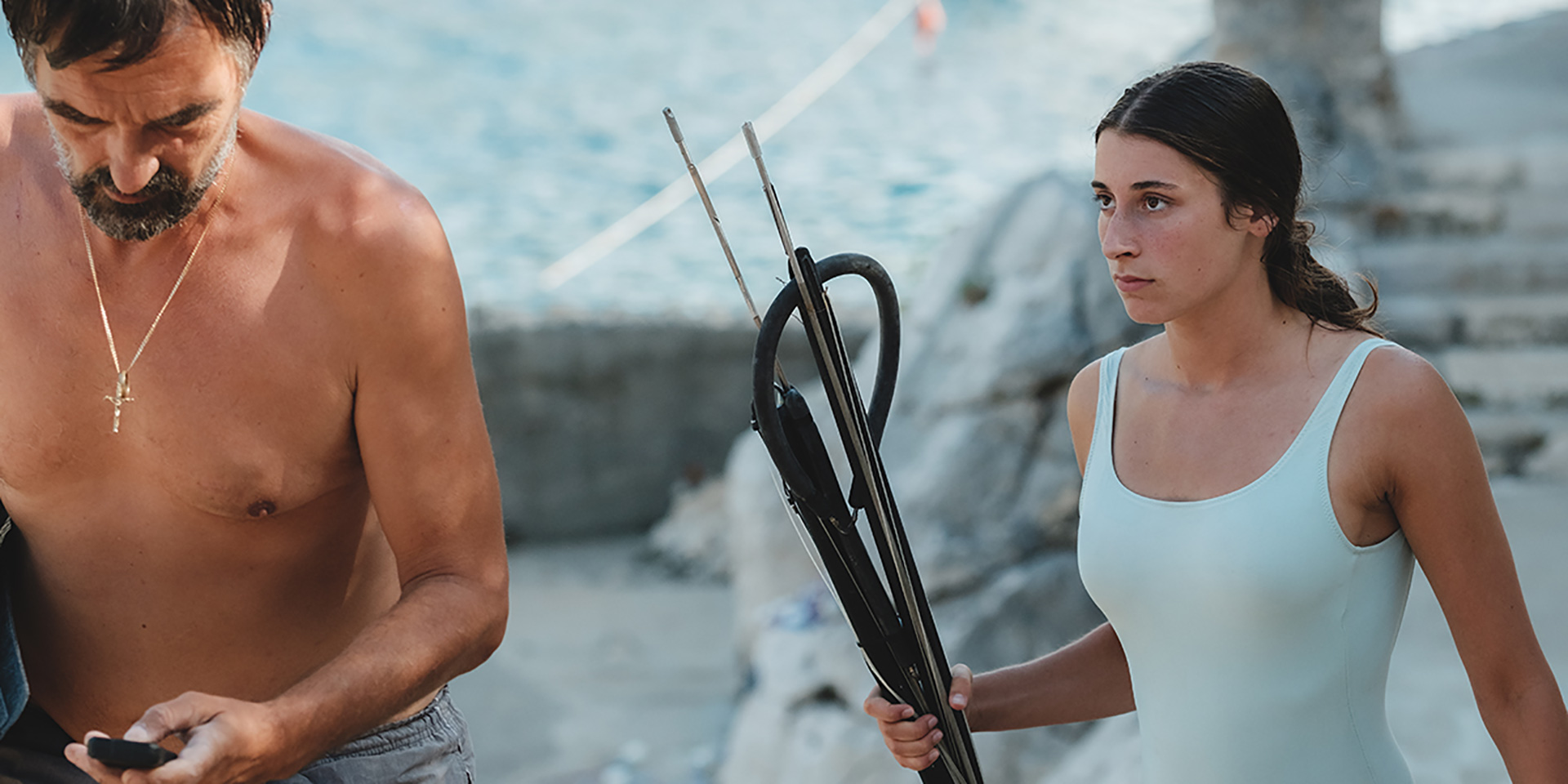
We often forget that exotic locales aren’t an escape for those living here. While co-eds dock ashore for sun, sex, and fun, families merely wake up early to go spearfishing so they have dinner that night. The psychological toll of constantly looking out your window at happy faces while dealing with the futility of teenage living under a domineering father with few (if any) opportunities to leave must be daunting. So when Julija (Gracija Filipovic) exits the water to see her father’s (Leon Lucev’s Ante) rich friend from a past life (Cliff Curtis’ Javi) has arrived, she wonders about the possibilities he brings. Ante and her mother (Danica Curcic’s Nela) hope to sell him land. Julija hopes he’ll save her. – Jared M. (full review)
Private Desert (Aly Muritiba; July 15)
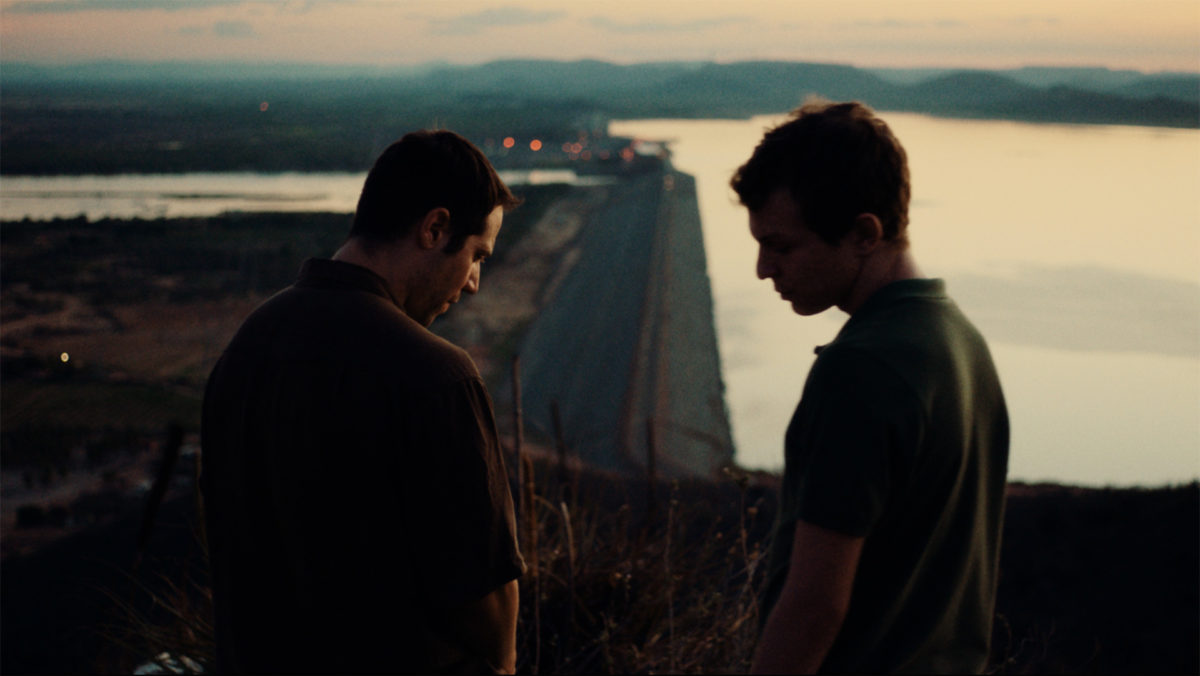
Writer-director Aly Muritiba said something very interesting about his new film Private Desert in the lead-up to its Venice debut. He spoke about a desire for its success to not simply be of the “preaching to the choir” variety. Rather than hope an artist, who already understands the breadth of love, could find something at the core of his love story, Muritiba wanted to open the hearts of those trapped under the oppressive force of conservatism and traditionalism. This tale of a conflicted policeman discovering his online lover isn’t who he thinks she is possesses the opportunity to connect with those who see themselves in the former, not the latter. And he embraces that possibility. Some audience members have not. – Jared M. (full review)
Nope (Jordan Peele; July 22)
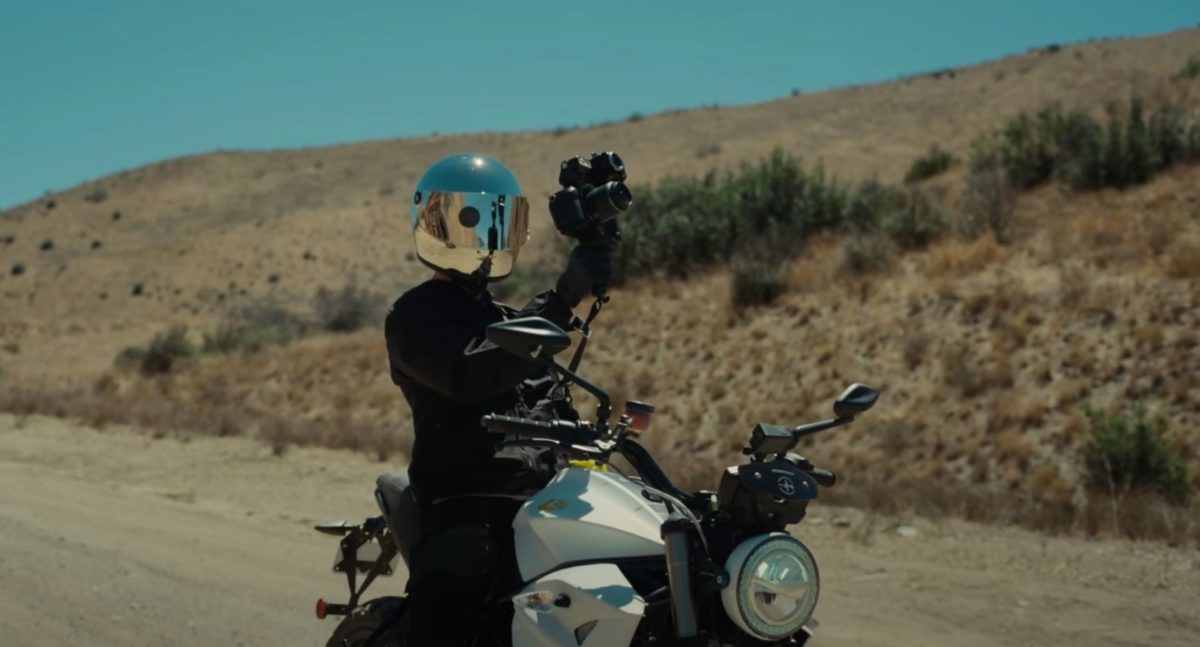
One of the very few original tentpoles coming from Hollywood this year is Jordan Peele’s latest. Following the one-two punch of Get Out and Us, he’s back with Nope starring Daniel Kaluuya, Keke Palmer, and Steven Yeun. The marketing thus far has revealed almost nothing of the actual plot, and hopefully they can keep it that way. Considering cinematography’s handled by Nolan regular Hoyte van Hoytema and sequences were shot with IMAX cameras, the mind leans towards a sci-fi-heavy angle, but we’ll have to see if Peele is simply toying with expectations. – Jordan R.
A Love Song (Max Walker-Silverman; July 29)

There are great faces, and then there is Dale Dickey’s face. Simply put, it is in a league of its own. The sole contender may be Wes Studi’s. A Love Song, written and directed by Max Walker-Silverman, has both. Lovely, short, spare, and bittersweet, this feature debut is living proof that less is sometimes more. Often the camera lingers in close-up on either performer’s beautiful mug, and it’s never long enough. We see the world in their cheeks and their eyes. We see their regrets, their fond memories, and their nervous anticipation of what’s next. – Dan M. (full review)
Fire of Love (Sara Dosa; July TBD)

In a bond forged over mutual fascination (or obsession) with the mysteries of volcanoes, Katia and Maurice Krafft dedicated their lives to discovering everything they could about these natural phenomena. Forces of both awe-inspiring wonder and tragic disaster, Sara Dosa’s archival documentary Fire of Love gracefully captures this extreme dichotomy while also getting to the heart of what drove this couple to abandon a routine, domesticated lifestyle and literally sacrifice their lives in the mission to save others. In telling their devotion to one of the natural world’s most dangerous forces, Dosa crafts a documentary that would make Herzog proud—and an ideal double feature with Into the Inferno, his collaboration with volcanologist Clive Oppenheimer, which also features the Kraffts. – Jordan R. (full review)
Resurrection (Andrew Semans; August 5)

Not all is well from the opening scenes of Andrew Semans’ Resurrection, based on his own Black List-charting script, which begins as a chilly, slick workplace and mother-daughter drama before exploding into a stomach-churning psychological thriller. Though its preposterous narrative ends up getting into rather silly territory that obfuscates its initial, more pertinent thematic ideas, the film is another stellar showcase for the immense talent of Rebecca Hall. One also can’t entirely fault the director for following through and taking his rather illogically extreme set-up to its most logically absurd conclusion. – Jordan R. (full review)
I Love My Dad (James Morosini; August 5)
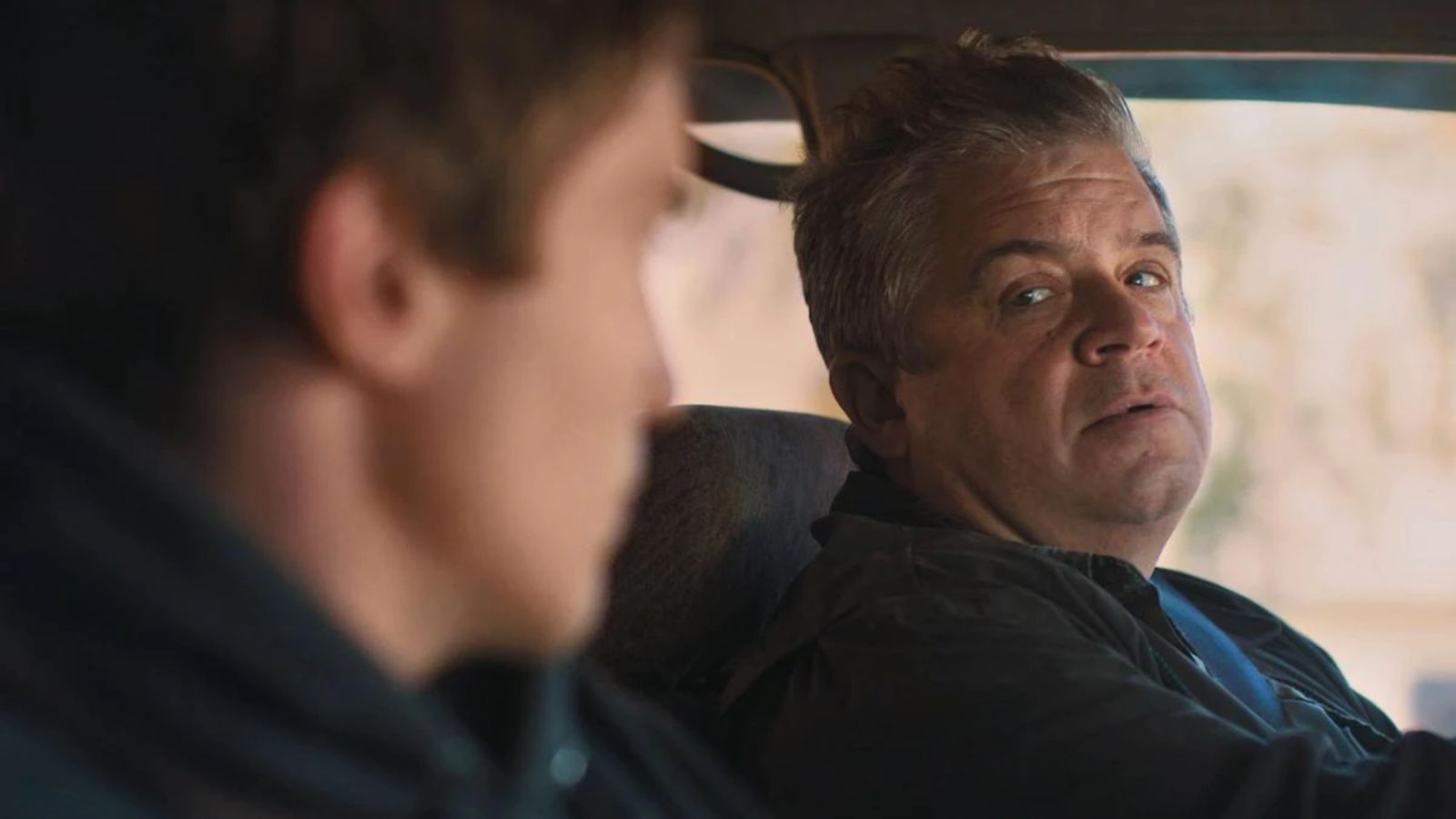
Inspired by actual events, I Love My Dad contains a cringe-worthy premise that should easily fall apart, as Franklin (James Morosini), a young-ish man, should have grown up with an awareness of the term “catfishing.” If a pretty girl with no friends starts talking to you on Facebook that should be an immediate red flag, but the emotionally vulnerable Franklin is willing to suspend disbelief and go with the flow. – Jordan R. (full review)
Sharp Stick (Lena Dunham; August 5)
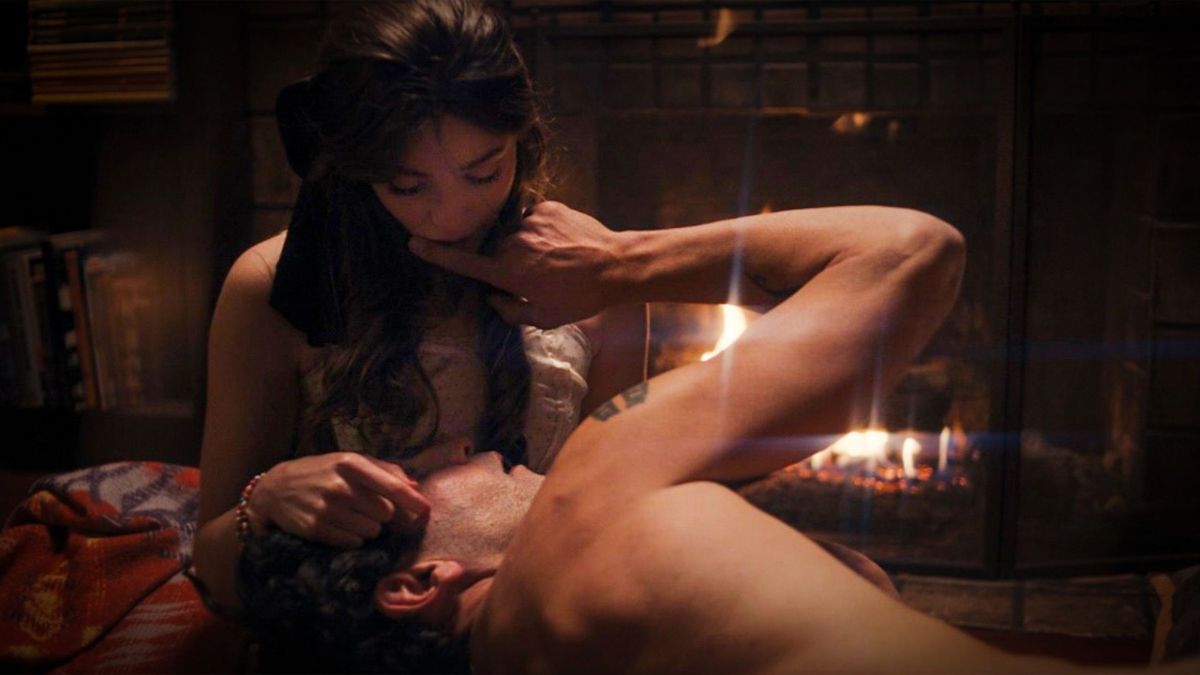
Lena Dunham’s Sharp Stick, her first feature since 2010’s Tiny Furniture, finds the writer-director again taking big swings with mixed results. Set in Los Angeles, as Dunham herself moved to the West Coast in 2020, the sex-filled comedy / drama follows Sarah Jo (Kristine Froseth), a 26-year-old virgin who begins an affair with Josh (Jon Bernthal), hunky father of the child she cares for. Once she starts having sex she cannot stop, determined to cross every carnal act and scenario off her construction-paper bucket list. – Michael F. (full review)
Emily the Criminal (John Patton Ford; August 12)
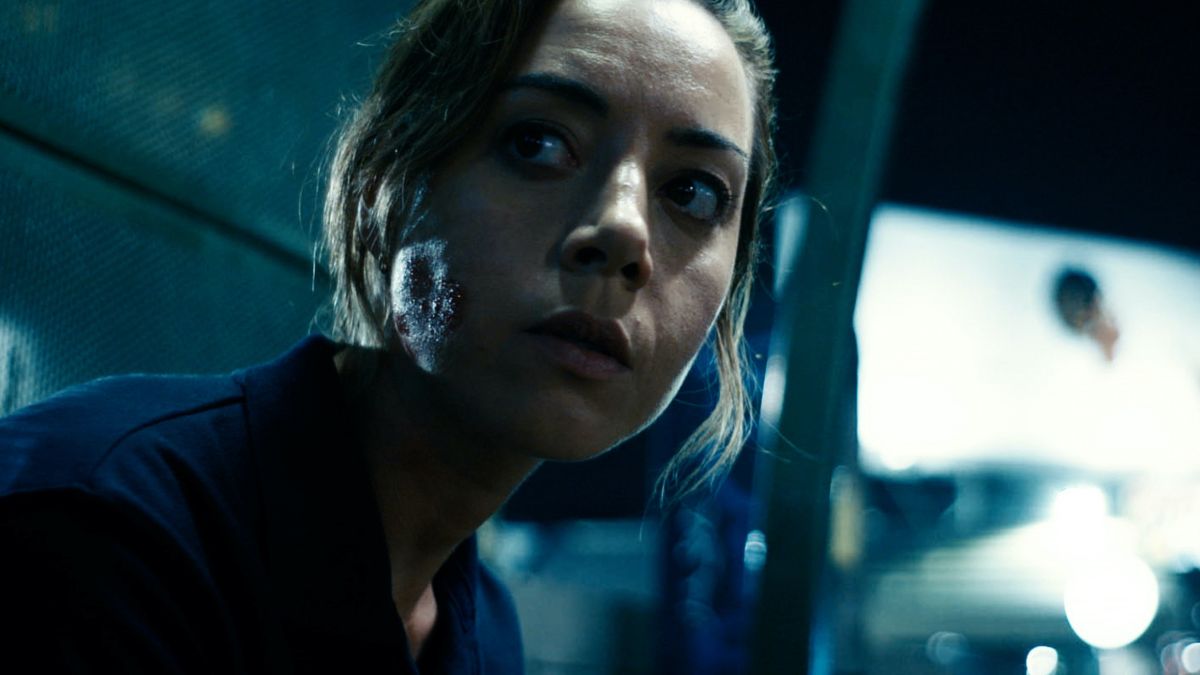
Taking part in ten Sundance premieres over the last ten years, Aubrey Plaza’s niche in the world of independent cinema has been well carved. Reaching into darker territory as of late, from Ingrid Goes West to Black Bear, her latest film, Emily the Criminal, takes things to a logical next step, placing the actress in strictly thriller territory as her character’s job prospects dwindle and she’s faced with getting into a dangerous, underground world of illegal activity. John Patton Ford’s debut as writer-director is simplistically crafted in both plotting and form, but Plaza’s committed performance carries us through the increasingly dire journey. – Jordan R. (full review)
Salvatore: Shoemaker of Dreams (Luca Guadagnino; August 19)

Biographical documentaries, just like the biographical narrative film, tend to benefit from some specificity. Danny Boyle’s Steve Jobs movie was quickly forgotten but it felt remarkably fresh upon release. This was thanks largely to the structure of Aaron Sorkin’s script, which honed in on three key nights to explain the bigger picture. Salvatore: The Shoemaker of Dreams, a detailed account of the legendary cobbler Salvatore Ferragamo’s life, goes the more conventional route––taking us from rags to riches and cradle to grave. – Rory O. (full review)
The Territory (Alex Pritz; August 19)
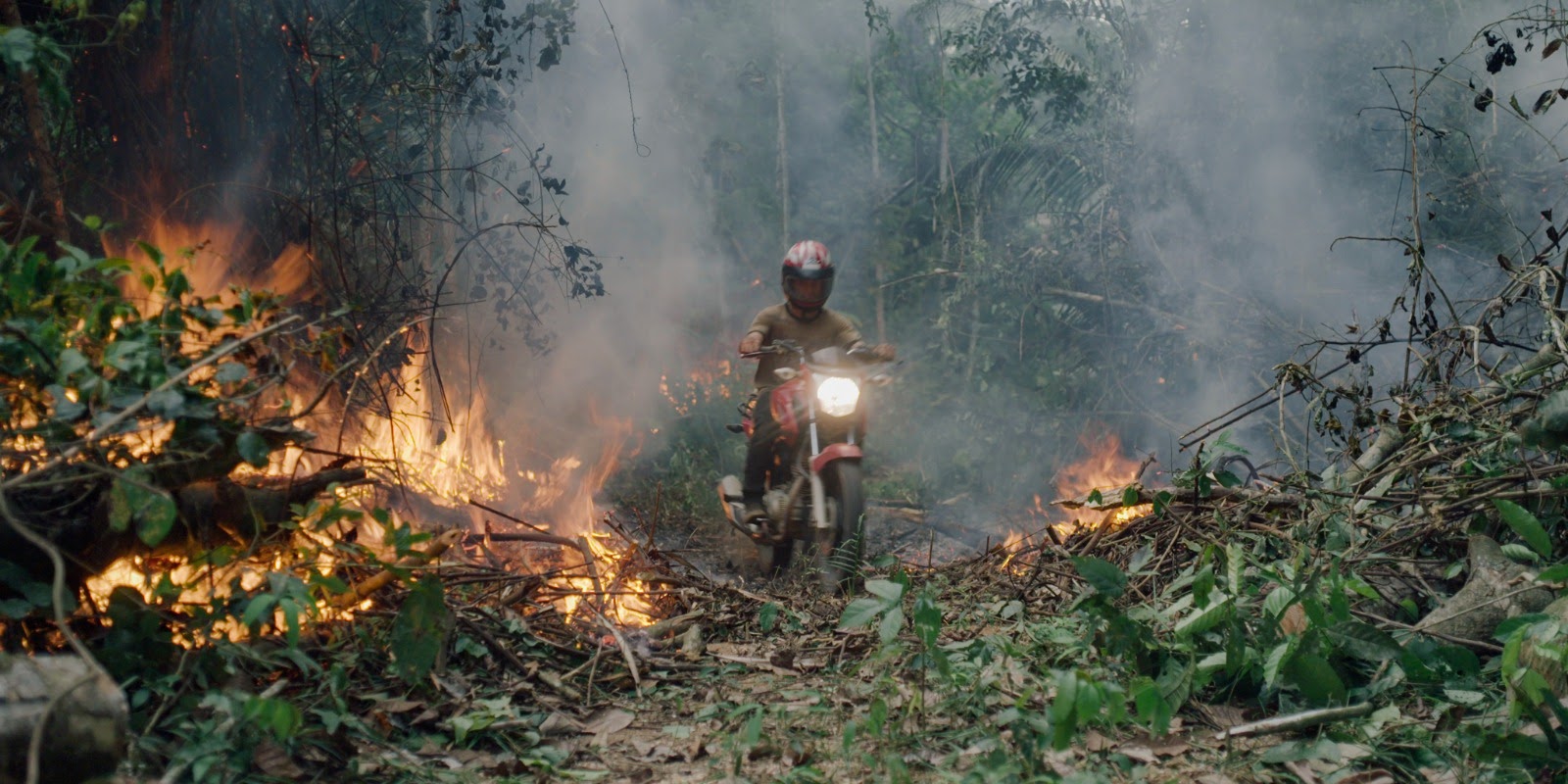
There are about 180 Uru-eu-wau-wau people left in the Brazilian Amazon. This community lives off the land, protecting the Amazon from deforestation, constant threats of violence, and an expanding base of anti-Indigenous sentiment, streaming from the far-right emboldened by President Jair Bolsonaro. Over three years, filmmaker Alex Pritz spent time with these native Brazilians for The Territory, a collaborative, vérité documentary that’s both engaging and terrifying. Pritz even hands over the camera to the Uru-eu-wau-wau at one point, as the group closes their borders and prepares for an ongoing fight to preserve their land. – Michael F. (full review)
Three Minutes – Lengthening (Bianca Stigte; August 19)
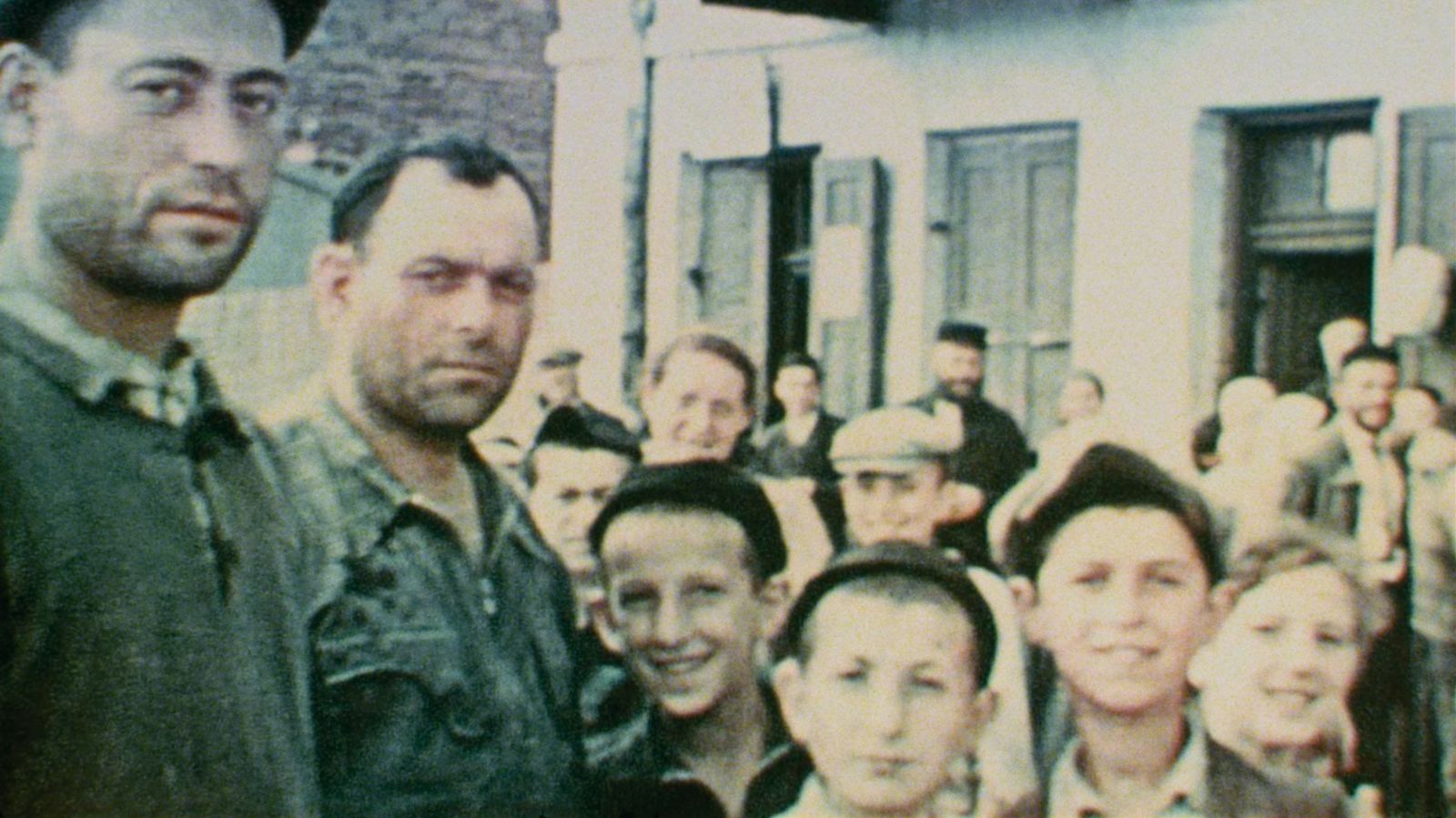
What can we glean from three minutes of film shot in 1938? This is the question driving Three Minutes — A Lengthening, an engaging essay film from director Bianca Stigter. Over a decade ago Glenn Kurtz recovered a 16mm film reel hiding in his parent’s house. It was footage his grandfather David Kurtz shot while on a European vacation in 1938. These three minutes photograph the mostly Jewish town of Nasielsk, Poland. By 1939, the Nazi occupation and their Holocaust would leave less than 100 surviving Jewish townspeople. In these brief, captured moments we see a flurry of faces. Who were these people? What lives did they lead? – Dan M. (full review)
Three Thousand Years of Longing (George Miller; August 31)
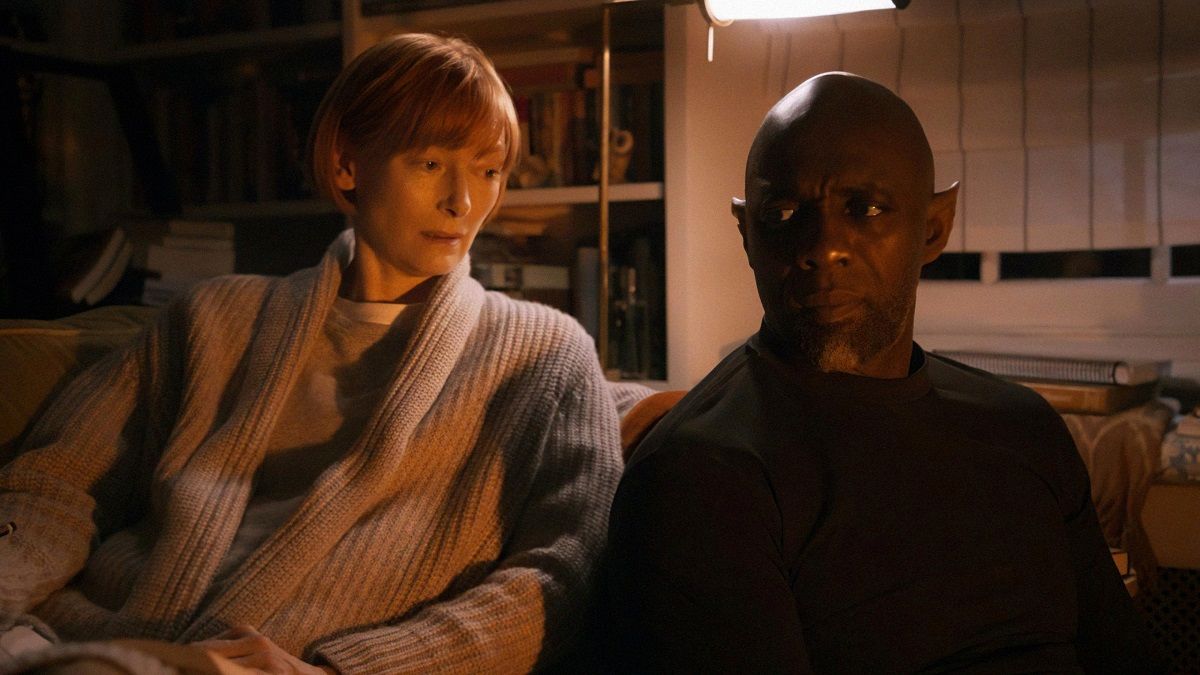
A late-breaking addition to the summer lineup, it was revealed out of CinemaCon that George Miller’s first post-Fury Road film, the fantasy drama Three Thousand Years of Longing, would get a limited release in the tail end of August before going wide Labor Day weekend. Led by Tilda Swinton and Idris Elba, it follows a scholar who encounters a Djinn that offers her three wishes. Described by Miller as the anti-Fury Road, we imagine this will be yet another strange detour in the director’s varied career and are all the more excited he’s not repeating himself. – Jordan R.
Free Chol Soo Lee (Julie Ha and Eugene Yi; TBD)
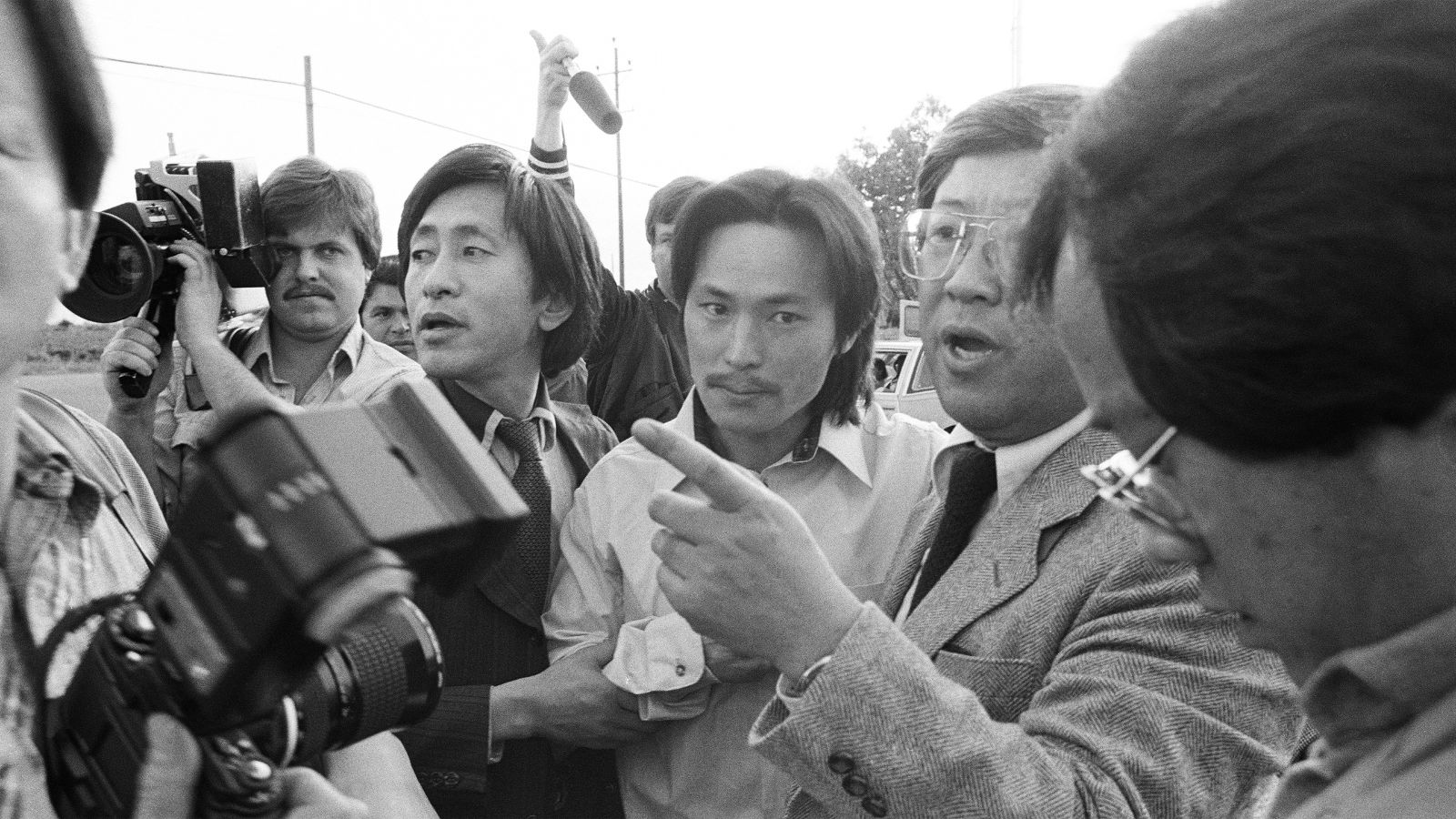
Shedding light on the life of the Korean-American cause cél`èbe, Julie Ha and Eugene Yi’s Free Chol Soo Lee captures a unique moment in Asian American history and ultimately the story of a young man who may have never had a chance. Arriving in Chinatown, San Francisco in the early ’70s, Chol Soo Lee worked odd jobs, among them barker for the local strip clubs. One day his manager shows him a gun that he borrows for no reason at all, leading to an accidental discharge in the bedroom of the flop house he’s occupied. Five days later he’s arrested for murder after a random killing is committed on the street, before a hundred witnesses, with the same type of gun he’d been playing with. – John F. (full review)
Honorable Mentions
- Pleasure (May 13)
- Hold Your Fire (May 20)
- A New Old Play (May 20)
- Emergency (May 20)
- Phantom of the Open (June 3)
- DASHCAM (June 3)
- Hustle (June 8)
- Lost Illusions (June 10)
- Official Competition (June 17)
- Brian and Charles (June 17)
- Marcel the Shell with Shoes On (June 24)
- Beba (June 24)
- The Black Phone (June 24)
- Bitterbrush (June 24)
- Olga (June 24)
- Don’t Make Me Go (July 15)
- Moon, 66 Questions (July 16)
- My Old School (July 22)
- Bodies Bodies Bodies (August 5)
- 892 (August 26)
- God’s Country (TBD)
- Hallelujah: Leonard Cohen, A Journey, A Song (TBD)
